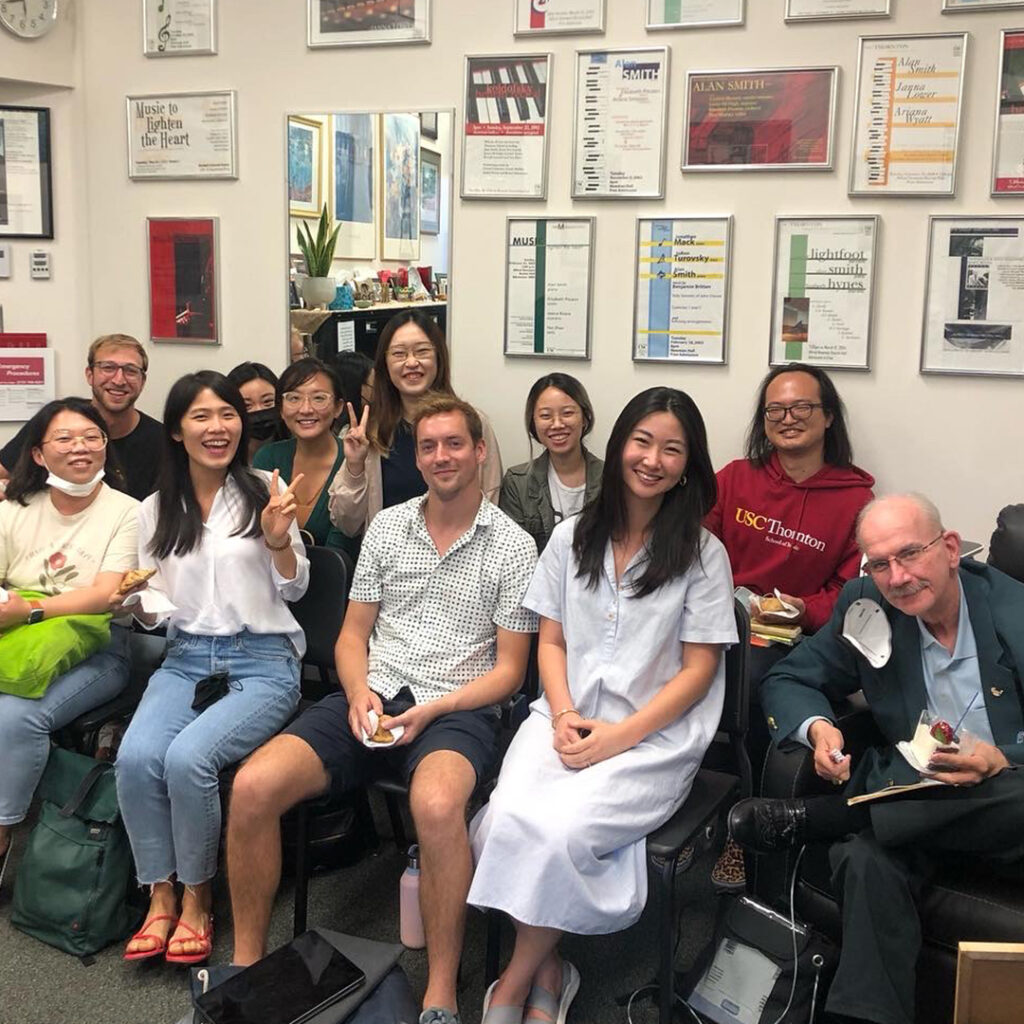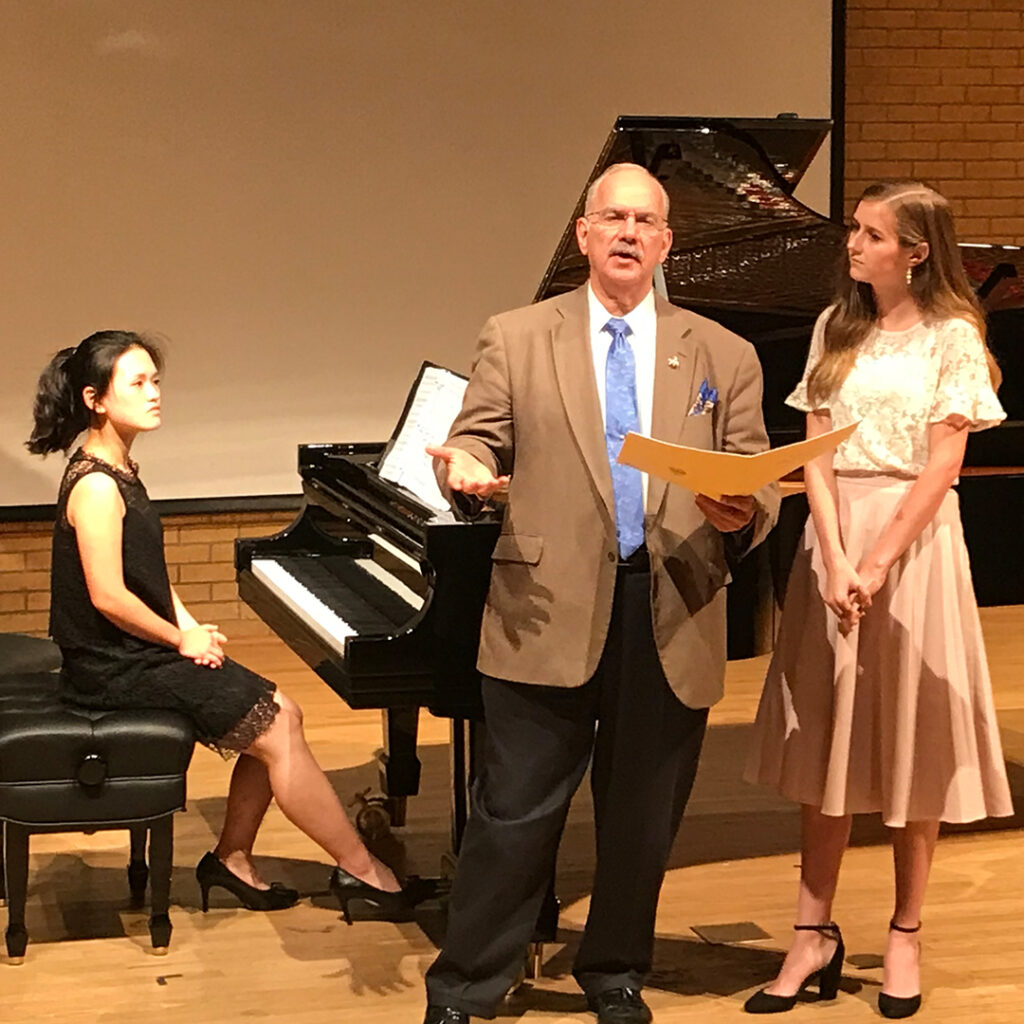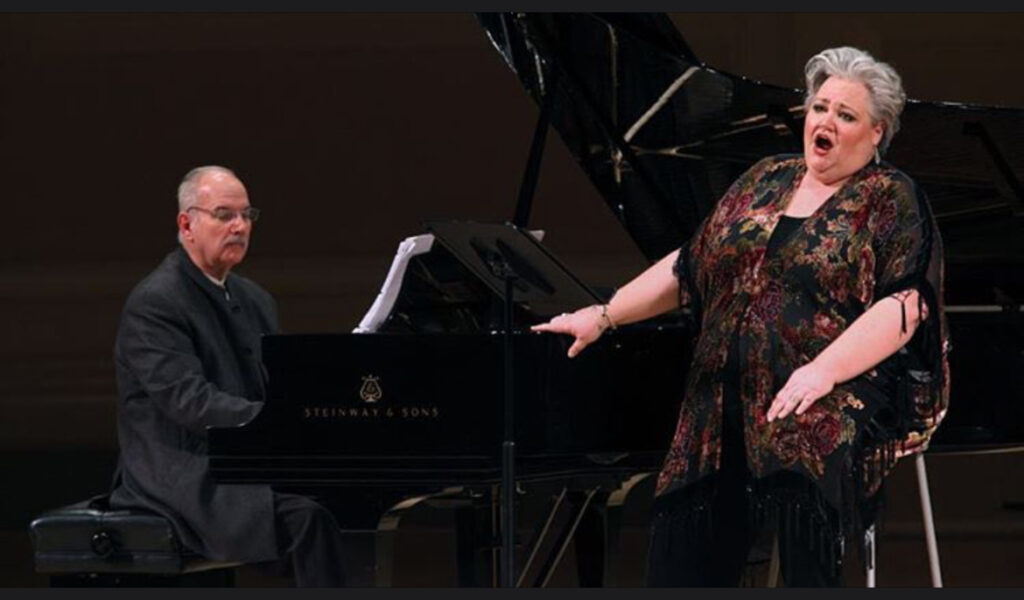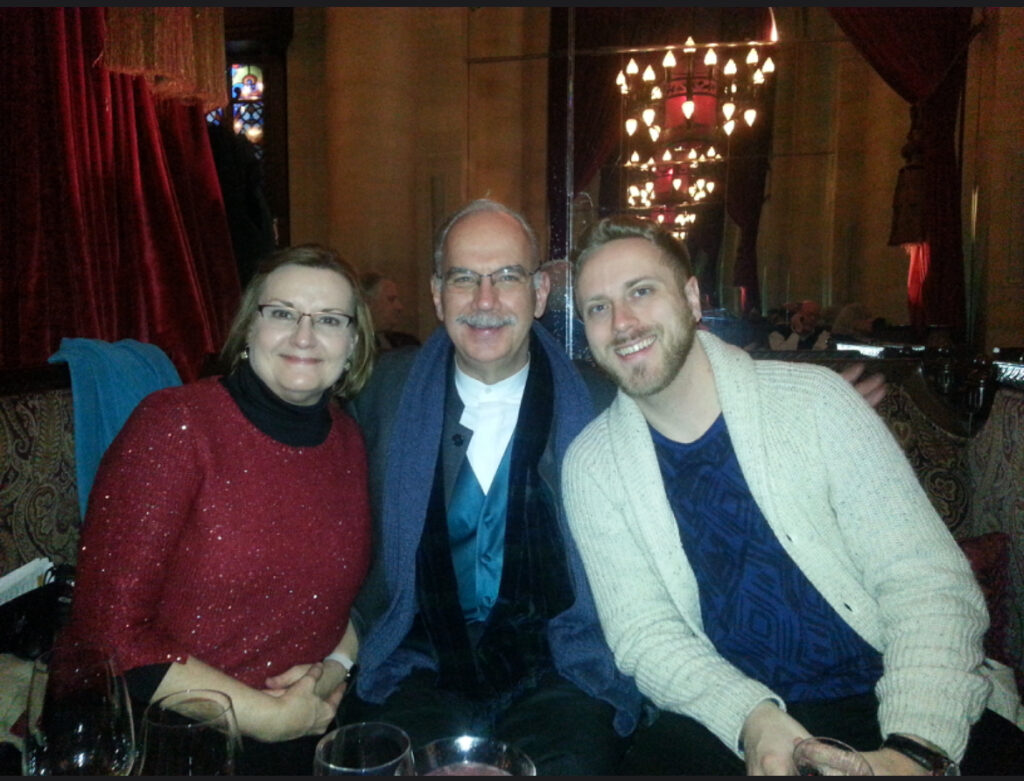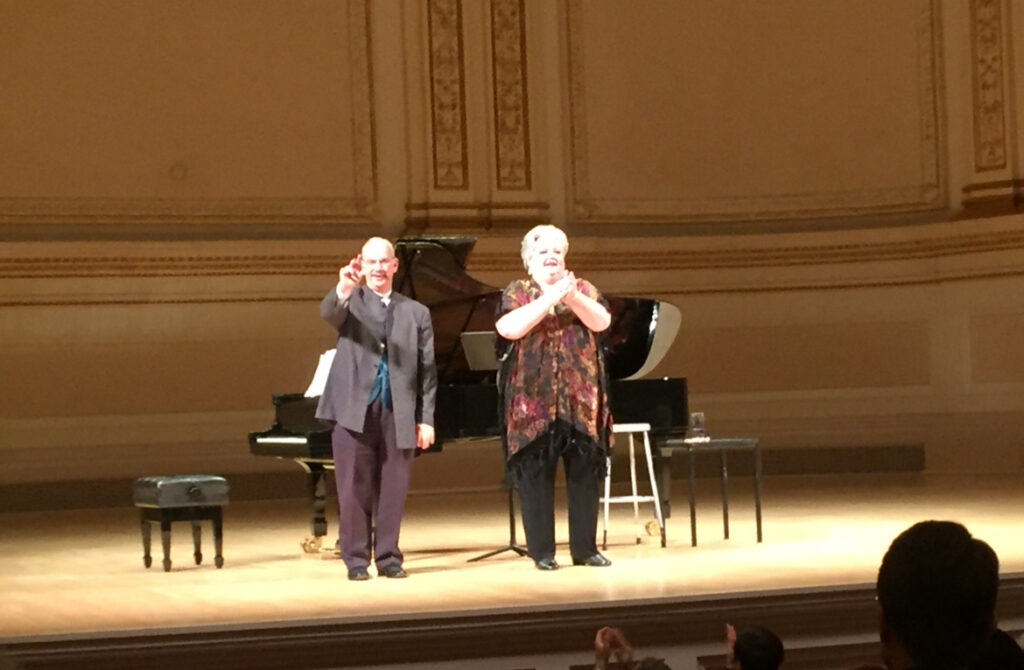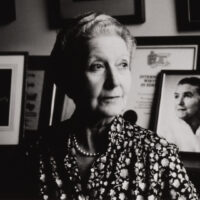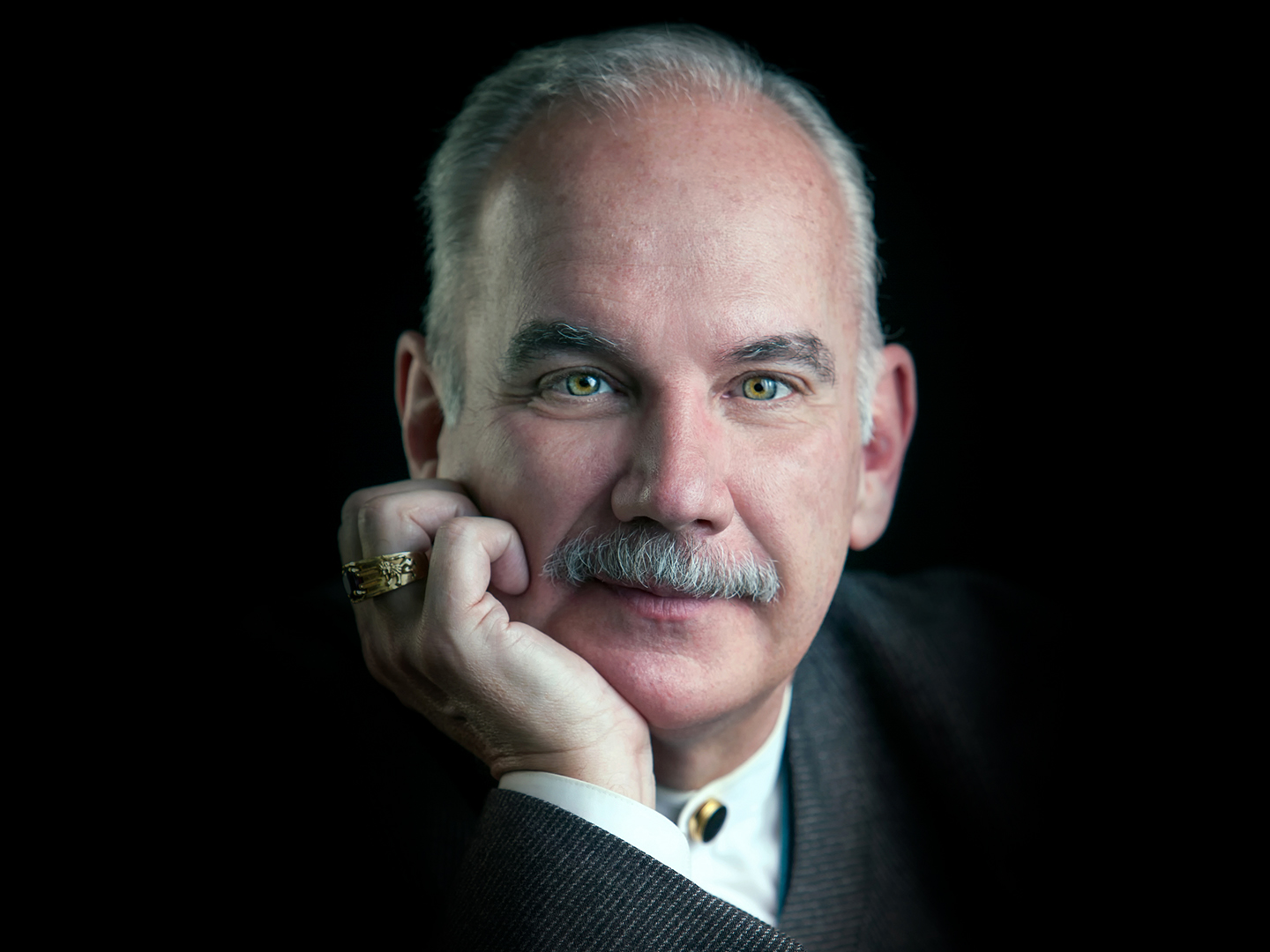
Remembering Alan Smith
By Evan Calbi
USC Thornton faculty remember longtime, beloved faculty member.
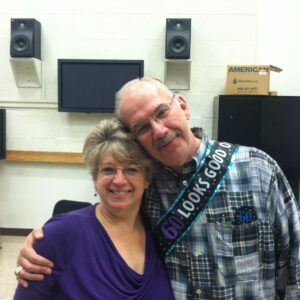
On Saturday, Nov. 4, the USC Thornton community gathered at All Saints Church to remember Alan Smith. The longtime faculty member, chair of Keyboard Studies and director of Keyboard Collaborative Arts, died on Oct. 31 after a long battle with cancer. He taught until his final days. Smith was in many ways like family to the faculty, alumni, and students of USC Thornton, and we remember him here by sharing the eulogy given by Thornton faculty member Lucinda Carver along with some remembrances by his colleagues.
Jason King, Dean of USC Thornton, wrote in an email to the Thornton community announcing Smith’s passing: “I deeply admired Alan’s tenacity, his resilience, and commitment to teaching in the face of enormous personal odds. He defined the ideal of going above and beyond, and being present for his students in extraordinary ways. May he rest in power.”
A scholarship fund at USC Thornton has been created in Smith’s name. Donations may be made to the Alan Louis Smith Keyboard Collaborative Arts Scholarship Fund. Select the “In Tribute/Memory” option and indicate it’s in memory of Alan Smith. If you require additional information or have questions on how to support the fund in other ways, please contact: music.advancement@usc.edu.
Eulogy by Lucinda Carver
There are three words that have been posted on the studio door of Dr. Alan Smith at the USC Thornton School of Music for several years. They are the same three words that often appeared on his famous whiteboard during his lessons and studio classes. Three words that the legions of his students among us will recognize immediately as his mantra:
LOVE
CURIOSITY
HONESTY
These three words were not just his artistic credo, nor his pedagogical manifesto, but rather are a summation of the values by which he lived his very rich life.
And of all the words written on that door, there is one that comes to all of us in thinking of Alan Smith, and that is the word LOVE.
For it is a love of people, a love of music, a love of life, and perhaps most importantly, a profound love for the nurturing of young talent that defined Dr. Alan Smith. Alan absolutely emanated love. He nurtured generations of young musicians during his 34 years as a professor, just as he nurtured and cared for the Keyboard Studies department for 20 years as chair. His love for poetry and storytelling springs off the page in every one of his glorious songs. All of us who had the honor of calling him our colleague, friend, or teacher were enveloped in that love, and THAT is why we are here today to celebrate him.
I know that many of you knew Dr. Smith as your teacher, and I hope you know that teaching was his life’s love. You — his students — were everything to him, and there are generations of you making the world a more beautiful and perfect place as a result of his long tenure at USC. He was so very proud of you, and he loved you. He loved talking about you, and often said that one of his favorite aspects of teaching was how he was also always learning from you how incredible it was to have you enable him to see a song, a poem, or piece of music in a new way.
To the very end, it was his profound love of teaching that helped him battle cancer and want to come to campus. It is not an understatement to say that this love kept him alive and enabled him to fight his disease with such courage and grace. Even in his weakened condition, it was an absolute thing of beauty to see the joy radiating on his face after his Song Lit class had just concluded.
Alan had so many magnificent attributes, but the one I will miss the most was his glorious, laser-sharp wit, and his quicksilver sense of humor. Alan could add both levity and gravitas at the very same time via this brilliant talent – and deliver it with lightning speed and spot-on accuracy – and almost invariably with a very healthy dose of irreverence.
I have so many fond memories of his humor, but the one I will always treasure occurred about three weeks ago. He was set up in his chair, ready to teach, and was waiting for his first student to arrive. He was in fine form, sending out one zinger after another as we chatted, and each one was more brilliant than the last. He was having a field day! I wish I had a recording of that exchange. It would last us all a lifetime.

If we all think back to life before the pandemic, many of you may recall the tupperware containers filled with delicious bundt cakes, brownies, and cookies that would magically appear in the Ramo office. This was the work of Alan the Baker. Alan loved to bake. He called it his aroma therapy. And all of us were the richer for it. He managed to bring a sense of home (and his mother’s wonderful recipes) to all of us in Ramo. I’m also told that, in his apartment building, his neighbors would open their doors to find goodies waiting for them in the hall as well.
I know that all of my dear colleagues in the Keyboard Studies department can attest to the fact that Alan was a magnificent department chair. He shepherded us as a department for two decades and nurtured both students and faculty alike with his profound wisdom, integrity, deep-seated care, and elegance.
I spent many, many hours with him, discussing situations with students, when he needed advice on how best to help them. He cared so very deeply for every situation and was a fabulous mentor – not only to our students, but to all of us in the department. And then there were those wonderful emails. Often written at the crack of dawn, his emails were truly a thing of beauty — written with tremendous care, beautiful, elegant prose, and emanating love.
CURIOSITY. Alan lived and he breathed it. His sense of wonder and curiosity was truly profound, and it stayed with him to the very end. He approached each new piece of music, or a work he had played or taught hundreds of times, with a sense of wonder and discovery, and he was infectious in sharing this marvelous spirit with his students. He was constantly probing, constantly growing, and he had an insatiable thirst for knowledge and a deeper understanding of music.
He absolutely loved attending concerts, and later, while fighting cancer, he spent hours with friends listening to music, talking about music. I remember popping by to see him at home when he was weakened from chemo. As we chatted, I began to worry that he was tired, but then, all of a sudden, he lit up in telling me about the new biography of Debussy he had just finished.
LOVE, CURIOSITY, HONESTY. I would like to turn to the words of Alan the Master Teacher. Several years ago, one of his students shared a copy of his Practice Techniques guidelines with me. It is a document that I treasure for many reasons — pedagogically, personally, and musically. On the front page, in large, 18-point font, are several missives that, to me, harken back to his three-word credo. Many of you in the audience will recognize these.
- “Practice with a sense of discovery.” Here we see Alan’s sense of wonder. He is nudging us to find CREATIVITY in our practice.
- “Practice with a conscious awareness of enjoying the process.” Reminding us to engage in a form of practice that comes from LOVE and engenders LOVE.
And for HONESTY:
- “Practice most of the time with no pedal.” Every pianist in this room will recognize that THIS is HONESTY at its finest.
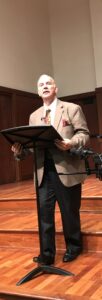
Embedded in the last page, just before a reminder to stretch at the end of the practice session, is a classic piece of Dr. Alan Smith: He urges students (and I assume this means ‘every so often’) to “Play through a piece sometimes just for the sake of wallowing in it. Put the pedal down, use tons of excessive, piggish rubato. If you miss notes, who cares?” But then, he writes in upper case: “NOTE: This is the way many of us practice, but this is not practice. This is wallowing!”
Last Friday, in the emergency room, Alan asked Berni Blaha, “How was your day?” She told him it wasn’t so great. He asked why, and she said, “We were all so very worried about you.” His eyes flashed as he looked at her intensely and said, “No, everything happened as it needed to happen.” Alan’s laser-sharp wit remained to the very end. The night before he died, he was busy regaling his dear friends and caregivers with his fabulous one-liners with lightning speed.
Yes. Everything happened as it needed to happen. Throughout his illness, Alan was surrounded by the most caring, dedicated and devoted army of angels imaginable, and he died peacefully when his heart simply stopped. Our dear Alan lived his life, and left us, according to his own plan.
Our lives are and will forever be enriched because of him. Rest well, dear friend.
Lucinda Carver (DMA ’89)
Professor of practice, Keyboard Studies, Early Music, & Conducting
Chair, Keyboard Studies
A blizzard couldn’t stop Smith’s performance at Carnegie Hall
On Jan. 23, 2016, Alan performed at Carnegie Hall with his dear friend, the great mezzo soprano Stephanie Blythe. The program was titled “Sing, America!” This day was notable because it was also the day of the famous Winter Storm Jonas blizzard that shut down New York City entirely. Twenty-five inches of snow fell in Central Park, and many of the boroughs came to a standstill. Broadway shows were canceled. All performances in every hall were canceled. But Alan and Stephanie’s recital began at 2:00 p.m., and they finished before the 4:00 p.m. citywide shutdown. It was a miracle they were able to go on. Their audience was reduced but extremely appreciative.
Alan’s nephew, Sean Fitz-Gerald, managed to make it through the blizzard from Brooklyn. He is pictured in the photo following the concert with Alan and his cousin, Theresa Field, who flew in from Texas days before and attended with her sister, Lydia Chasen.
During the concert, the proud piano faculty of Thornton supportively cheered on Alan from Newman Hall, where they were hearing piano auditions. The concert of these two superstars was a huge and memorable success.
Bernadene Blaha
Professor of practice, Keyboard Studies
Remembrances of Thornton Faculty
When I began my teaching career at USC, the stars aligned, and I was given a studio right next to Alan Smith. It was love at first laugh in our corner of Ramo Hall. From then on, Alan was for me an inspiring musical collaborator, an example of a true artist-teacher, and a dear, dear friend. His loss is personal for my family and myself, and yet we share his loss with Alan’s many students, current and former, all those whose imaginations were set loose by him, and for all those he simply and completely cared about.
We are the fortunate ones; we knew and loved Alan Smith.
Elizabeth Hynes
Associate professor, Vocal Arts & Opera
***
Alan Smith was my teacher in my doctoral degree at USC Thornton, and my mentor from that point until the day he left this realm. He was my trusted colleague and a beloved, treasured friend for 33 years. It is still hard to believe that he began as my teacher and later became my faculty and eventual colleague as chair of a department at Thornton. I am incredibly grateful to have learned from him, laughed with him, and shared our love of music and poetry along with daily highs and lows of our everyday life. While his absence leaves a void in my heart, his legacy and his music will keep his spirit with us always.
Lisa Sylvester (DMA ’94)
Professor of practice and Chair, Vocal Arts & Opera
***
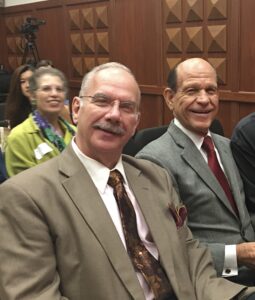
Alan left an indelible imprint on the history of the Thornton School with his compassionate, meticulous, and dedicated work as our Keyboard Studies department chair and director of the Keyboard Collaborative Arts program. He initiated and championed the titles “KCA” and “Collaborative Pianist” in lieu of the unflattering term “accompanist” in our everyday verbiage. He also made our daily work together, of further developing an already world-renowned program, a tremendous joy and privilege. We shared an extraordinary 34-year journey that brimmed with discovery, humor, passion, creativity, and personal friendship. His far too early passing has left a huge void in our music school. He will always be remembered for his legendary prowess as a collaborative pianist, master teacher, vocal coach, lieder expert, thoughtful administrator, renowned composer, beautiful poet, and beloved colleague.
Kevin Fitz-Gerald
Professor, Keyboard Studies
Director, Keyboard Collaborative Arts
***
When I arrived at USC in 1986, I inherited an exceptional faculty, an assembly of nationally known leaders in their respective fields. At a zenith among these artists/teachers was the tandem of Gwendolyn Koldofsky and Brooks Smith, architects and founders of the first Department of Accompaniment in the country. Koldofsky, renowned for her work with such preeminent singers as Lotte Lehman, Herta Glaz, and Marilyn Horne, and Smith, long time musical partner of Jascha Heifetz, attracted major young talent to their studios. Among the early cohort were Martin Katz, Anne Epperson, and Jean Barr. As the 1990s loomed both of these magnificent individuals retired. We were blessed that Jean Barr had taken the helm of the piano accompaniment department. However, in 1988, Jean took a position at the Eastman School causing an even more urgent need to repopulate our Accompaniment Department.
We launched a search to not only replace Gwendolyn, Brooks, and Jean but to sustain the reputation of the Department. A vast applicant pool made the selection process especially challenging. In the whirlwind of the quest one name continued to stand out. A young man out of Texas captured the interest of the search committee. First was the fact that he had been a student of Martin Katz at Michigan. He was a first-class pianist and a natural teacher. Equally compelling, he was a wonderful human being. Aware of the legacy he was to uphold, he accepted our offer with signature modesty and grace.
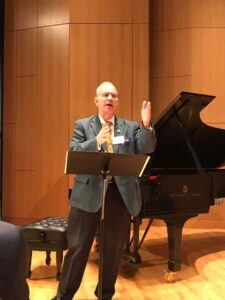
The rest of the story already finds itself in the annals of our profession. Alan Smith took the reins of the Department, soon to be renamed the Keyboard Collaborative Arts program, and molded it into an even more luminous and widely sought after program. Building on the tradition left him, he broadened the ambitus of the curriculum, hired more faculty, and elevated the student applicant pool. Thanks to his rising national visibility, there was a new buzz about the KCA offerings at what had become the Thornton School of Music at USC. Alan’s appearances at prestigious festivals like Tanglewood, helped further heighten the reputation of the program.
Little did we know that Alan was also a gifted composer. Soon his music became standard fare in venues like Carnegie Hall, Lincoln Center, Ravinia, and the Kennedy Center. Singers across the land began to include his pieces in their repertoire. Commissions poured in and gave the name Alan Smith dual fame, his KCA program and his compositions both evidence of his deep and original musical personality.
Alan’s passing leaves a space in the heart of our School virtually unfillable. Beloved by his students, he led them to realms of music making which quickened their technical facility and acumen but only as a servant of musical exploration. He taught them that notation is at once a key to, and at the same time, can also be a veil concealing the truth. Alan’s students speak of his humanity, his evocations of spiritual essence which informs the best music. That the composer is whispering in your ear and all you have to do is listen. He offered them succor when they were down and was effusive when they shined.
As a colleague, Alan was a prince. Thoughtful, buoyant, and eloquent he made life in the hallways a joyful excursion. He was kind, cheering the achievements of the rest of us with his Smithian delight. Ask him a question and one needed to prepare for a ride on a Ferris wheel of verbal sleight of hand, or the marksmanship of a Zen archer. Impossible to catch off guard, Alan seemed prepared for every conversation, a bon mots always at the ready. Brilliant but shy, droll but without edge, erudite but with a hint of Texas marinade, he was unique in his music and in his soul.
To the end he was still unalterably Alan. I served on a DMA committee with him shortly before he died. On the oxygen, struggling for breath, and no longer able to cross the room, he participated on Zoom with the same self rigor and purposeful questions which were his hallmark. It would be tempting to cite him as a warrior challenging death to cross his bar. Somehow that portrayal, while accurate in fortitude misses the point. Alan’s life among us was full of pluck, the kind of strength born of restraint, hubris an untapped stranger. Rather it was his valor, both ennobling and organic, which carried him into our midst and now resonates in sweet memory, a gift of transcendent worth. Unto himself Alan Smith was reason enough to have a school. And he was beautiful.
Larry Livingston
Professor and Chair, Conducting
Dean of USC Thornton, 1986 – 2002

